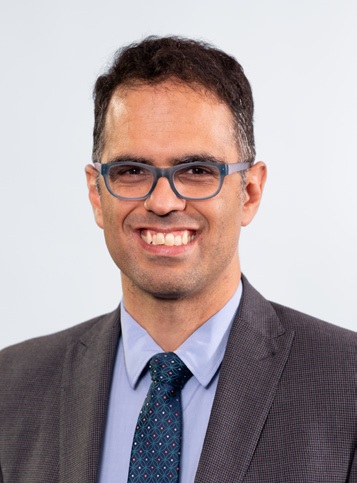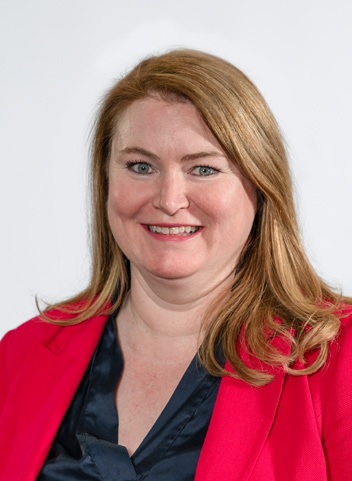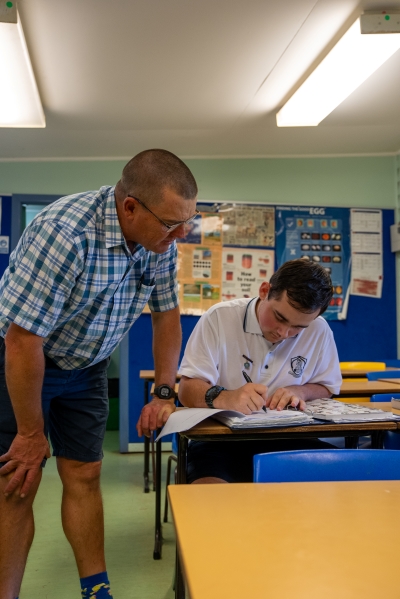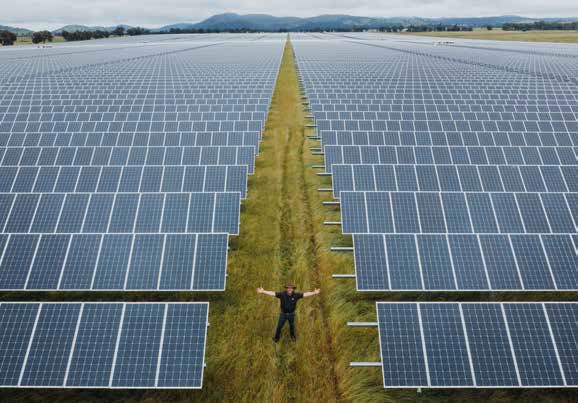Foreword
Regional New South Wales is home to more than a third of the state’s population, but covers more than 95 per cent of our land mass. Communities spread from Byron Bay to Bega, from Broken Hill to Bourke and everywhere in between.
More than its natural beauty, regional New South Wales is defined by the people who call it home. People are the region’s greatest asset, which is why we are rebuilding our essential services like schools and hospitals, paying our frontline workers a wage that recognises their contribution, and investing in regional jobs and industries to drive economic growth.
This budget includes $1.8 billion in new regional investments to build on the strengths of our regions, invest in essential services and infrastructure, and improve service delivery and quality of life in our rural and regional communities.
As part of this, we are establishing a $350 million Regional Development Trust Fund, and a $250 million Working Regions Fund, committing to major investments in regional roads and housing, critical biosecurity measures to protect our industries and regional ecosystems, and support for regional jobs and businesses.
We are making regional communities stronger by enhancing access to high-quality healthcare. We are creating 500 new jobs for paramedics in the regions and transitioning hundreds of regional nurses and midwives to permanent roles.
The NSW Government is committed to delivering high-quality education in every part of our state, which starts with paying teachers a fair and decent wage. We have made more than 7,000 teachers and support staff permanent in our public schools, and are investing $1.4 billion in regional schools, so that all students will have access to world-class education.
The transition to renewable energy is one of the most transformative changes that we will see in our lifetimes, and in New South Wales this will be driven by regional workers and communities.
The NSW Government is accelerating the renewable energy transition, by investing an additional $804 million in Renewable Energy Zones to ensure NSW households and communities have a reliable supply of clean, affordable electricity. Regional communities are at the forefront of this transition, which will create more than 9,000 jobs in regional areas.
We are committed to supporting regional communities to thrive, and to continue to be a great place to live, work and set down roots.
Regional NSW snapshot
The people of regional New South Wales play a crucial role in the economic prosperity of the State. A third of the state’s population call a regional area home, and they produce around a fifth of total NSW Gross State Product. Thousands of people also visit the regions each year to sample their produce, enjoy their natural wonders, and spend time with family and friends.
The 2023-24 Budget reflects the NSW Government’s commitment to supporting communities across regional New South Wales by providing the critical services and infrastructure required to foster the ongoing prosperity of the state.
This Budget includes investments in essential services in regional communities, recognising that the biggest strength of any community is its people.
Our commitments to increased investment and support for these services, most notably in health and education, reflect our understanding that good health and education set us up to face the challenges of the future. To support this, the NSW Government is investing in upgrades to schools and hospitals, which are central to life in our regional communities.
The 2023-24 Budget is forward looking, with investments in transitioning our economy to a clean energy future and supporting those industries that make such a significant contribution to our state.
This document highlights the Government’s investments in the communities of regional New South Wales.
Budget highlights
Growing regional economies and communities
Regional New South Wales is a great place to live, work, and raise a family. Our regional communities offer an amazing range of opportunities to grow, thrive, and contribute to the economic prosperity of the state.
The NSW Government is investing in services and infrastructure across regional New South Wales to support communities with the things that matter most to them. Together, we will continue to ensure our regional communities remain strong and prosperous into the future.
Advocates for regional communities
Regional people, and the industries they work in, make a significant contribution to the economic output of the State. The NSW Government is investing in targeted programs and independent advocates to ensure that regional industries are supported to thrive.
The 2023-24 Budget includes:
- Targeted projects and grant programs totalling $1.2 billion that support councils, communities, and businesses across regional New South Wales to enhance economic growth, social development, wellbeing, and community amenity.
- Investing in the future needs of regional communities, aligned with the Australian Government Regional Investment Framework, with $350.0 million allocated to the Regional Development Trust Fund.
- World-class digital services and telecommunication pricing to rural and regional New South Wales, with a $252.1 million investment.
- Establishing an Independent Agriculture Commissioner, with $5.5 million to provide more protection for our farmland, ensure food security and a more prosperous agricultural industry.
- Implementing the Plan for Fishing, with $4.9 million to support a sustainable fisheries estate, including establishing peak bodies for commercial and recreational fishing sectors.
- Re-engaging a Dairy and Fresh Food Advocate, with a commitment of $2.2 million to review supply chains, address food security issues, and be a voice for farmers.
Protecting our agriculture industries
Agriculture and primary production is one of the most significant and iconic industries of our regions. New South Wales is home to more than 39,000 agricultural businesses, 42,000 farms, and more than 66,000 people employed in the agricultural sector alone. To support these industries, the NSW Government is investing an additional $298.5 million toward biosecurity and agricultural programs.
Biosecurity management is vital to protecting our agricultural and primary production industries to ensure they continue to deliver high-quality produce to national and international markets. It protects the economy, environment, and community from the negative impacts of pests and diseases, weeds, and other contaminants.
The 2023-24 Budget includes:
- Strong biosecurity systems to prepare and respond to threats, including:
- Protecting New South Wales from the march of Red Imported Fire Ants, with an additional $80.0 million.
- Supporting beekeepers, horticulture and industries affected by the Varroa mite, with $77.2 million.
- Supporting prawn fishers, farmers, and businesses with $10.2 million in targeted response to white spot disease.
- Supporting sheep and goat farmers implement a mandatory individual electronic identification across New South Wales to provide traceability with a $39.0 million partnership with the Australian Government.
- Commencing the $13.0 million Feral Pig Control program to reduce the number of feral pigs and protect primary producers and farming communities.
- Helping farms to prepare for and adapt to climate change with $11.1 million for the Farm Business Resilience Program, with the Australian Government .
- Establishing the Good Neighbour Program, with $10.0 million to tackle weed and pest infestations between neighbouring public and private lands.
- Establishing an Independent Biosecurity Commission, with $2.3 million to protect the economy, environment and the community from the impacts of pest animals and weeds. The Commission will work with the Natural Resources Commission to discover the extent of pest animals and weeds on public land.
Supporting regional industries
Regional New South Wales is home to a wide array of businesses and industries, attracting workers from around the world to participate in our vibrant regional economy.
Our regions support diverse industries including professional services, world-renowned tourism destinations, and safe and sustainable mining and geoscientific practices. The NSW Government is committed to ensuring industries across the state are supported to prosper into the future.
The 2023-24 Budget includes:
- Supporting Moree to become a thriving business hub, with $224.8 million to build sustainable water endowments and new technologies such as protected cropping and innovative energy solutions.
- Supporting Wagga Wagga, with $212.2 million to enable the town to be a sustainable hub of high-value agricultural production and food manufacturing, supporting industries and businesses to connect to the world.
- Funding of $89.8 million to grow investment and job creation in mining and exploration in regional New South Wales through geoscience data collection.
- An additional $50.0 million investment for water infrastructure and provision of serviced lots as part of $332.2 million to transform Parkes into a national freight and logistics hub.
- Assisting timber mills recovering from the Black Summer bushfires, with $13.5 million for the Construction Softwood Transport Assistance Program.
- Supporting regional community and newspapers to improve the long-term sustainability of regionally-focused media and news gathering organisations, with a $6.0 million investment.
- Establishing Regional Future Jobs and Investments Authorities to work in partnership with community leaders to guide the transition from a coal based economy toward other economic activity and employment, with a $5.2 million investment.
Environmental protection
Regional New South Wales boasts a vast array of natural wonders, from deserts and ancient rainforests, seascapes, and soaring mountain ranges. It is home to a diverse range of native animals and flora, including the iconic koala.
The NSW Government is committed to protecting our natural environment and is investing in measures to preserve it for the enjoyment and appreciation of generations to come.
The 2023-24 Budget includes:
- Establishing the new Great Koala National Park on the Mid-North Coast, with $80.0 million to preserve large tracts of koala habitat.
- Managing and replacing existing visitor infrastructure with $74.4 million to ensure the State’s national parks can continue to be enjoyed by the public.
- Helping Landcare address environmental degradation, with $58.8 million. These interventions will improve and sustain agricultural productivity, environmental protection, resilience to natural disasters and community vitality.
- The Environment Protection Authority continuing to coordinate blood lead screening and home assessments of lead exposure pathways in Broken Hill, at a cost of $4.1 million.
- A reservation of $3.5 million for the Port Stephens Koala Hospital, Northern Rivers Wildlife Hospital and Friends of the Koala to deliver treatment, care and rehabilitation for sick and injured native wildlife.
Rebuilding essential services
When the people of our regions are supported, the whole state benefits. The NSW Government is focused on providing targeted services and infrastructure where it’s needed, to deliver real outcomes for people in our regions.
The NSW Government is rebuilding and strengthening essential government services. We are focused on measures that make a real difference to the long-term sustainability and prosperity of people in regional communities.
Investing in the regional workforce
Nearly 140,000 people work in state public services in our regions; a significant proportion of the regional workforce.
This workforce includes the nurses that care for us when we are ill, the teachers that educate our children, and the police that keep us safe. This Budget supports and rewards these essential workers.
The 2023-24 Budget includes:
- Support for thousands of NSW public sector employees with a 4.5 per cent pay increase (including superannuation), with benefits to flow to regional households and communities.
- Making more than 7,000 temporary teachers and support staff permanent in our regional schools.
- 1,112 nurses and midwives, whose positions were funded only temporarily to June 2024, will now be made permanent with an additional $572.3 million. Hundreds of these positions will be in regional NSW.
- Addressing paramedic shortages and improving ambulance response times with 500 new regional paramedics through a $438.6 million investment.
- Beginning the introduction of Safe Staffing levels with a $419.1 million investment to deliver better outcomes and experiences for patients, including in rural and regional hospitals.
- Doubling of the incentive payment for healthcare workers moving to regional and remote areas from $10,000 to up to $20,000.
- Delivering salary packaging benefits for eligible healthcare workers at a cost of $170.8 million.
- 3,000 Landcare groups across New South Wales, supported by $58.8 million.
- Delivering targeted workforce development training to provide industry-relevant skills, with $27.2 million for Tocal College.
- Additional National Parks and Wildlife Service field officers at a cost of $22.1 million.
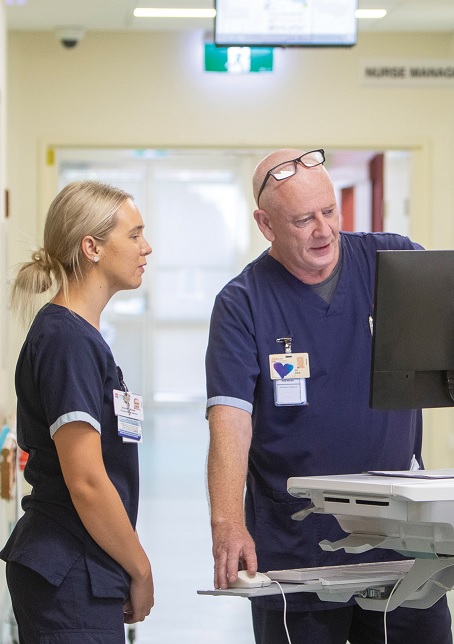
World-class education
More than 40 per cent of schools in New South Wales are in regional, rural or remote areas, educating almost 25 per cent of our students across the state.
The NSW Government is working to ensure we are providing quality education to every student in every school in our state.
The 2023-24 Budget includes:
- $769.3 million for 100 new preschools on public school sites where they are needed most across the state.
- Funding for new and upgraded schools, with $222.0 million for:
- Googong High School
- Medowie High School
- Jerrabomberra High School
- Vincentia High School.
- $40.0 million to support not-for-profit early childhood education in high growth and regional communities, and a trial of more flexible service delivery models.
- Attracting and retaining rural and regional teachers through the Grow Your Own training program.
- Providing equal opportunities for rural and remote students through digital uplifts under the Rural Access Gap program.
- Upgrades to Bungendore High School for $71.0 million.
- Relocation of Budawang School for $34.4 million.
- Delivering a new primary school in Albury Thurgoona.
- A new primary school in Nowra.
- Delivering a new primary school at Wilton Junction.
- Upgrades to Wee Waa High School.
- Upgrades to Gillieston Public School.
- Upgrades to the Jindabyne Education Campus.
- Relocation of Lennox Head Public School.
Supporting housing delivery
The cost of housing continues to rise across regional areas, driven largely by a lack of supply in the housing market.
The NSW Government is investing in practical measures aimed at increasing supply and providing safe and affordable accommodation to the residents living and working in New South Wales regions.
The 2023-24 Budget includes:
- Support for new housing supply, with $1.5 billion from the new Housing and Productivity Contribution to deliver enabling infrastructure in key growth areas, including the Central Coast, Lower Hunter and Illawarra-Shoalhaven.
- A new Housing Infrastructure Fund that includes $100.0 million to deliver infrastructure projects in regional New South Wales that will unlock housing, as part of a $400.0 million program.
- Debt financing of $70.0 million to accelerate the delivery of social, affordable and private homes, primarily in regional New South Wales.
- Support for new Build to Rent trials in the South Coast and Northern Rivers, at a cost of $60.0 million.
- Providing critical services to vulnerable Aboriginal and Torres Strait Islander families through Services Our Way, including in Coffs Harbour, Clarence Valley, New England, Central West and Illawarra-Shoalhaven, for $35.3 million.
- Delivering faster quality social housing through a $10.0 million Modular Housing Trial.
Regional transport upgrades
Roads, rail and transport services are critical to life in regional New South Wales, connecting communities to one another and supporting the movement of goods produced in our regions to national and international markets.
The NSW Government is committed to ensuring that the roads used by regional communities daily are reliable and safe so people can travel to work, visit family and friends and keep our supply chains moving.
The 2023-24 Budget includes:
- Delivery of a new regional rail fleet, with $1.4 billion to replace the ageing regional fleet to improve safety, accessibility, amenities and reliability of regional train journeys.
- Establishing a $390.0 million Regional Emergency Road Repair Fund to support regional councils in managing existing roads and prioritising works based on the needs of their communities, particularly those damaged by natural disasters.
- A range of regional transport programs, with $333.9 million to replace ageing timber bridges through the Fixing Country Bridges program, providing improvements to regional bus services, and supporting councils through the Fixing Local Roads program.
- Establishing a Regional Roads Fund, with $334.0 million to build new roads in rural and regional areas, including:
- Planning and design work for the Gosford Bypass for $40.0 million.
- Investigating the Bulli Bypass for $20.0 million.
- Upgrades at the intersection of Yass Road, Bungendore Road and Ellerton Drive for $19.0 million.
- Early work for the duplication of the Thornton Rail Bridge for $15.0 million.
- Repair and restoration of Cuttagee Bridge for $15.0 million.
- Early work on the East Nowra Sub Arterial Road project for $12.0 million.
- Replacing Kyogle Council’s remaining timber and composite bridges for $12.0 million.
- Improvements along the Golden Highway for $12.0 million.
- Upgrades to the Port Stephens Road for $10.0 million.
- Upgrades to Nerriga Road for $10.0 million.
- Upgrades to Briars Sharrow Bridge for $9.0 million.
- Constructing a roundabout at the Alphadale crossroads with Lismore City Council for $7.5 million.
- Continuing to deliver improved capacity and reliability of the regional rail network and deliver a highly functional network for moving freight in and out of regional areas, with $95.9 million for the Fixing Country Rail program.
- Planning for the transition of fleet to Zero Emission Buses, including for services in high-growth regional areas, with $29.4 million committed.
- Delivering vehicle tracking and automatic passenger counting technology, with $20.2 million to continue the Transport Connected Bus Program.
- Upgrading Moss Vale Station for $11.3 million to improve accessibility for customers.
- Improving the network of heavy vehicle rest stops across regional New South Wales, with a $10.0 million investment.
- Continuing planning works to deliver the Nelson Bay Road Upgrade.
Energy transition
The NSW Government is working to transition the economy to a clean energy future and regional communities will be at the forefront of this transition. It is one of the largest investments in regional New South Wales in the last 100 years and presents a significant opportunity for growth, development and creation of jobs in regional areas.
The NSW Government is accelerating the delivery of Renewable Energy Zones, with new infrastructure for the generation, storage and transmission of reliable, affordable and clean electricity for homes and business across the state.
The Renewable Energy Zones in Central West Orana, New England, South West, Illawarra and Hunter will generate billions of dollars of investment. They will create more than 9,000 jobs providing new opportunities for growth, investment and continued prosperity for communities in those regions.
The 2023-24 Budget includes:
- Seed funding of $1.0 billion to create the NSW Energy Security Corporation, a state-owned body to partner with industry on projects that provide affordable, accessible and reliable energy to households across New South Wales.
- Putting the delivery of Renewable Energy Zones and other critical transmission projects back on track, with $804 million to ensure that New South Wales has a reliable supply of clean, affordable renewable energy.
Disaster recovery and preparedness
Communities across New South Wales have experienced some of the largest natural disasters in the nation’s history in recent years, with widespread flooding events across many areas in the wake of the devastating Black Summer bushfires.
The NSW Government continues to provide support to those recovering and rebuilding from these events, as well as planning and preparing to limit the impact of future disasters on communities.
The 2023-24 Budget includes:
- $4.0 billion in targeted recovery programs to support communities, regional councils, and businesses across New South Wales to recover, rebuild and prosper.
- Helping flood survivors get back into their homes following the 2022 floods in Lismore by providing $5.0 million to support the Two Rooms Project.
- Developing a new Rural Fire Service Fire Control Centre and integrated Emergency Operations Centre at Moruya, through an additional $5.0 million, bringing the total investment for this critical facility to $20.0 million.
- Protecting communities in high-risk areas of New South Wales through investment in a $3.3 million natural disaster detection system.
- Upgrading police facilities at Helensburgh, with a $3.0 million commitment.
- Supporting the Tweed Shire Council in implementing urban flood mitigation projects, with a $2.0 million contribution.
- Upgrading facilities at the Moss Vale Fire Station, through a $2.0 million investment.
Water security
Water is our most precious resource and nowhere is it more critical than in regional New South Wales. Communities rely on it for drinking water and recreation purposes, and primary industries rely on it to ensure our agricultural producers remain among the world’s best. Healthy river systems support entire ecosystems and provide important habitat for native plants and animals.
The 2023-24 Budget includes:
- Improvements to critical water supply infrastructure for Wilcannia, Eurobodalla and Cobar, as part of a total $222.4 million commitment with the Australian Government.
- Safe and Secure Water Program initiatives of $217.5 million to support regional towns dealing with town water supply, quality and safety risks.
- Planning to improve water security for Tamworth, with $6.0 million to identify practical solutions.
- Improving water security and catchment health (Tweed, Brunswick, Richmond and Evans Rivers Catchments) as part of a $5.0 million contribution for the Northern Rivers Watershed Initiative.
- Delivering Murray-Darling Basin Plan commitments to support river health, access to water, and better water efficiencies to minimise the impacts of Australian Government buybacks.
Image credits: Destination NSW, NSW Department of Education, NSW Health, Department of Regional NSW, New South Wales (Transport for NSW), Grenfell Shire Council, Weddin Shire Council
